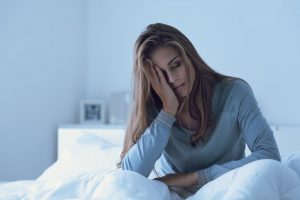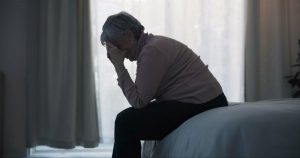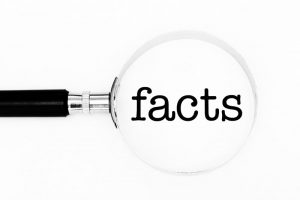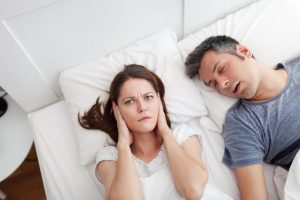
It’s America’s favorite weekend activity: catching up on sleep. But when you sleep in, are you really making up for lost sleep?
Please click on the below link to find out more

It’s America’s favorite weekend activity: catching up on sleep. But when you sleep in, are you really making up for lost sleep?
Please click on the below link to find out more

One of the most common sleep disorders is insomnia and according to a recent report published in the Journal Sleep, it may be linked to sleep apnea. Researchers in Albuquerque interviewed 20 men and women with chronic insomnia, all of whom denied having any sleep breathing disorders. The researchers found that chronic insomniacs woke on average 30 times a night. Hypoxia or a brief drop in the volume of oxygen inhaled caused by a narrowed airway closely followed 90 percent of those interruptions.
In the study, sleep researchers asked participants about their causes of their nightly awakenings. Surprisingly, none of the participants mentioned breathing as a reason for their awakening. Of the most popular responses were racing minds, nightmares, a need for the bathroom and pain.
However, after analyzing their sleep, it became clear that their awakenings were triggered by a respiratory event. Each participant underwent a polysomnography test while spending a night at a sleep clinic. Using wired sensors that tracked brain waves and breathing, researchers and lab technicians were able to chart and monitor every awakening, when brain waves shifted to a waking state for at least 16 seconds, and every breathing issue causing oxygen intake to dip well below normal.
Read more here: https://www.soundsleepinstitute.com/insomnia/is-insomnia-linked-to-sleep-apnea/

In the study, researchers separated hamsters into two groups: one group experienced a standard light/dark cycle, while the other group was exposed to a dim light at night—on par with city lights outside your window or the glow of a TV screen. After four weeks, hamsters who slept with some light showed signs of depression. (Depressed hamsters? Yup. Researchers tell by observing the rodents’ interest in sugar water.)
(more…)
Sleep problems could run in families. In a 2007 study published in the journal Sleep, researchers found that out of 953 adults who said they were good sleepers, had insomnia symptoms or suffered from insomnia, about 35 percent of those with insomnia had a family history of insomnia. According to a 2008 study, teens with parents who have insomnia have an increased risk for using prescribed sleeping pills, and having mental problems.
(more…)I know somebody who is a pilot. They can not be diagnosed with sleep or it is immediate disability and they can’t pilot the plane. MY question is have you ever done the MAD for this type of person without the diagnosis? What would the liability be if you said it was just for snoring?
This is one reason we have ambulatory (home) monitors, so we can rule out anything more severe. I would insist on at least this, and you can keep it away from insurance and any official diagnosis. The liability would be pretty heavy if he fell asleep at the controls, thinking he was cured, when in fact you had created a “silent apneic”, so you really need to get at least a Level 4 study done on this patient.
I have a patient who has opted to seek counsel with their physician regarding a sleep study. She has tremendous daytime drowsiness among other symptoms.
Originally, her doctor persuaded her to not visit a sleep center for reasons I can only imagine. In the meanwhile, at my prodding, she has visited her doctor again and he wrote a script for a PSG study at her local hospital. However, the doctor also prescribed Lexapro to ‘keep her alert’ during the day so that she would have a nice sleep the nite of the study. If I remember from your class, that class of drugs limits or reduces REM sleep. Do I recall correctly?
Lexapro and other anti-depressants will remove REM sleep, which indirectly improves the AHI, but at the expense of a valuable segment of sleep. They will sleep better if their anxieties are preventing sleep initiation, so it can be helpful, but will not give a true picture of the patient’s sleep architecture. That may or may not matter to the sleep physician, but I would ask the expert before deferring to the general MD.
I seem to have a couple of patients who complain of snoring and want me to make them a snoring appliance, but are reluctant to spend the time & effort to go to the sleep clinic for a baseline.
How would you feel about screening these patients with a home monitor to r/o significant apnea? If the screening is negative, I would go ahead and make the snoring appliance with some degree of confidence that I was not ignoring an apnea problem. If it is positive, then use the results of the screening to encourage them towards complete diagnosis for sleep apnea.
What monitor would you suggest for this? Also, would I need to be certified to read the results?
That’s an OK plan, as long as you follow them up with home monitoring to make sure the appliance is removing any events. That way, you can treat anyone up to about 30 events per hour, and even higher numbers if they have failed CPAP. There is no certification for reading the studies, but it does take some education. I love the Watch-PAT 200, but it’s more robust, and you may want to spend less. The ApneaLink is a “screener” at a lesser fee, but it all depends on what you want.

Q: What is it with men and snoring??!! I don’t know many men who can honestly say that they don’t snore. My father-in-law did it; my dad does it. And, now, I am double-whammied, because I have not only one man in my house who snores but two!
(more…)